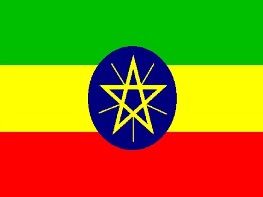Addis Ababa, 17 March 2015 (WIC) – When looking for opportunities to invest in sub-Saharan Africa, there are few better places than Ethiopia, the East African Business Week reported.
The country enjoys a unique location at the crossroads between Africa, the Middle East and Asia.
The investment law protects private property, but apart from this basic requisite for cultivating business confidence, there are other clear cut guarantees.
A foreign investor has the right to make the following remittances out of Ethiopia in convertible foreign currency at prevailing rate of exchange.
The other crucial thing that ensures investors’ capital is safe is that Ethiopia is a member of the Multilateral Investment Guarantee Agency (MIGA).
This is the World Bank Group affiliate that covers non-commercial risks in signatory countries.
Ethiopia also recognizes all the provisions of the World Intellectual Property Organization, besides having several bilateral agreements with countries that protect investors’ portfolio.
Ethiopia may well be also considered as a country with the lowest levels of crime and corruption among the least developed countries.
The Federal Government has formulated the five year Growth and Transformation Plan (GTP) to carry forward the important strategic directions to maintaining a fast growing economy, projected to grow at average rate of 11.2% annually.
Ethiopia’s economy is still young with vast untapped resources and a range of investment opportunities. The country has comparative advantages in agriculture, agro-processing, leather and leather products and textiles and garments.
However, to ensure an ordered development, the Council of Ministers regulations specify the areas of investment open for foreign investors.
Apart from the areas already mentioned, others with the most promising potential include sugar, chemical and pharmaceutical products, tourism, mining and hydro-power.
Ethiopia’s economy is based on agriculture, which accounts in 2012/13 for about 42.9% of the Gross Domestic (GDP), 90% of foreign currency earnings and 85% of employment.
Generally, the overall economic growth of the country has been highly associated with the performance of the agriculture sector.
Coffee is a critical commodity to the economy. It earned $745.1 million during financial year 2012/13. Other notable products during the same year were gold ($584.4 million); oilseeds ($437.1 million); khat ($270.6 million); live animals ($160 million); leather and leather products ($120.6 million); meat and related products ($74.1 million); fruits and vegetable ($43.7 million).
The industrial sector, which mainly comprises of small and medium enterprises accounted for about 12.4% of GDP in 2012/13. At 45.2% contribution is the growing service sector which is made up of a wide range of enterprises. An investor will find no problem in being interested, although the difficulty will come in choosing exactly where to put their money.
In order to improve the export sector, the Federal Government set up the Ethiopia Commodity Exchange (ECX). This is a marketplace where buyers and sellers come together to trade, assured of quality, delivery and payment. ECX guarantees an end-to-end system that is efficient and fair to all.
During 2012/13, total exports amounted to $3.1 billion. However, there is a huge scope for higher export receipts once a steady diversification from coffee is done through new investment in other areas of the economy.
The Industrial Development Strategy focuses on export manufacturing with priority given to textile and garments, leather and leather products, agro-processing and small and micro-enterprises.
Due to the investment-friendly environment created in the country, the inflow of foreign direct investment (FDI) has been increasing over the last 21 years.
Out of the total investment projects licensed between 1992 and 2012, FDI’s share is about 15.8%.
However, the overall trend of investment in 2012, both in terms of projects and capital, showed a definite increase and this has not change this then.
Ethiopia remains an untapped and unexploited market for investors. A list of the countries that are already involved in the country reflects this attraction. These investors are from China, India, Sudan, Germany, Italy, Turkey, Saudi Arabia, Yemen, the United States, United Kingdom, Israel and Canada.




